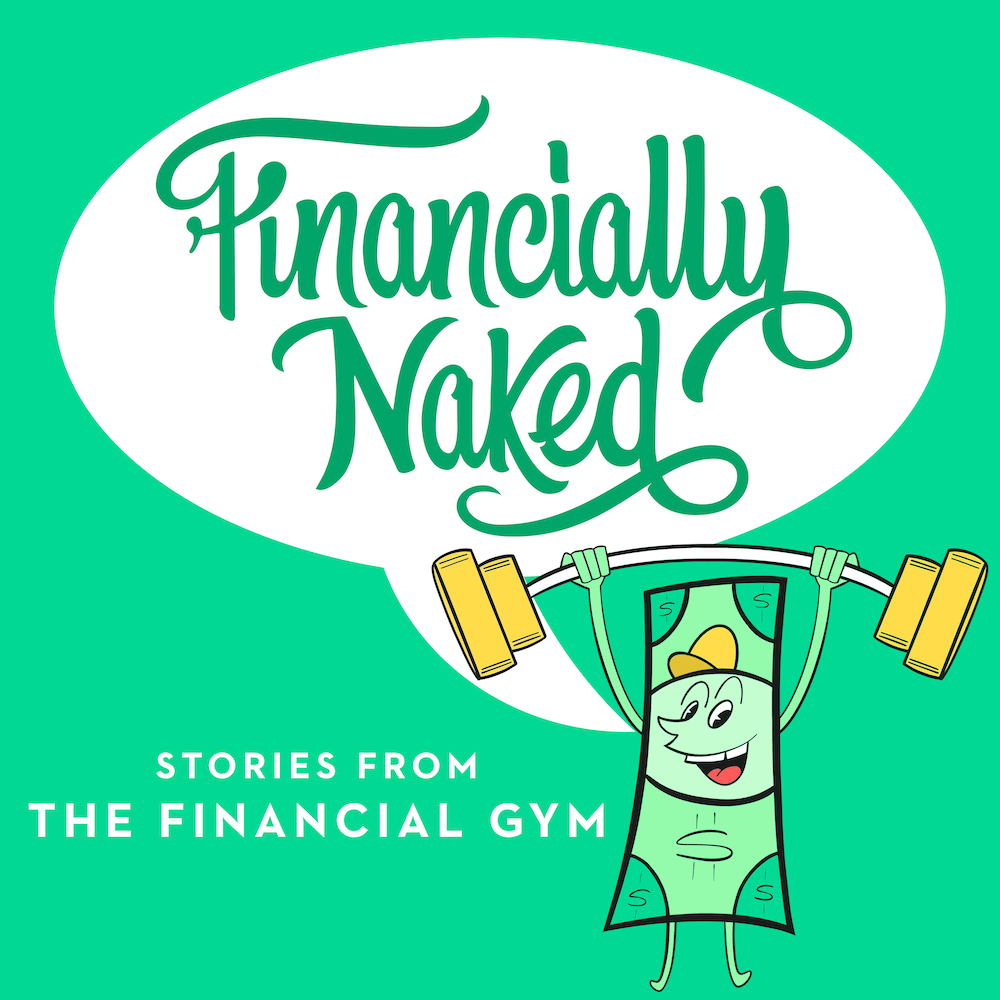Pros and Cons of Different Budgeting Apps
Money Management Apps with Victoria, Sara, and Kadri
On this episode of Financially Naked: Stories from The Financial Gym, our host is Victoria Sechrist, Financial Trainer, and she is joined by her coworkers Sara Belhouari and Kadri Augustin, to discuss money management apps.
Podcast Notes
In addition to being Financial Trainers, Sara and Kadri are both life coaches. They both encourage their clients to be vulnerable and help them keep their focus on their financial journeys. Clients who change their thoughts and changes their mindsets do the best and see results.
There isn’t just one perfect money management app. Victoria gets asked about Mint all the time. Kadri loves Mint. This app gives you a one-stop shop to see all of your finances, like your 401(k), investments, bank accounts, credit cards, and loans. It gives you a snapshot of your financial life. It also categorizes transactions.
If you can set a schedule for yourself and stick to it, any money management app is going to be good. For Kadri, once a week he goes in to make sure all of his transactions are correctly categorized, he reviews all of his accounts, and he looks at his spending trends. It allows him to be mindful and self-aware.
Mint is one of the most popular apps, because it is widely used. Sara agrees with Kadri on the pros, including it is free, you can see a full picture, and you can categorize. The cons include you only getting the best use of it if you click and go to that app, and it may be too much information for someone just starting out on their finances.
Another con is that Mint isn’t a great budgeting app. It is great for looking back at your history but not going forward. Kadri uses mostly the desktop version of Mint. No app will work if you aren’t consistent with it.
TrackIt is another app that is more for beginners. It is a very manual app, kind of like a glorified calculator. It allows you to manually input all of your expenses, date, and dollar amount. It give you a clear picture but only if you fill it in daily or every couple of days. It is great if you are trying to stick to a tight budget.
Sara is a consistent spender, so she doesn’t use TrackIt as much. When she first started at The Gym and gave her clients $100 a week to spend, she wanted to see if she could stick to it herself and she used the app.
Personal Capital is almost identical to Mint. The difference is the integration and dashboard. It is best for people who have more investment accounts. Personal Capital does have investment advisors who will manage your investments if you want. It is meant to give you a broad view of your portfolio, like a financial diary.
YNAB (You Need a Budget) is good for someone who loves a good budgeting spreadsheet, numbers, and getting into the details of their finances, but it is not free. YNAB takes your income and your current expenses, and it creates a zero-sum budget. Sara doesn’t think it is the easiest to understand, but it gives every dollar a purpose.
The best app is the one that you will use. Everyone is unique and thinks differently. Some clients don’t use any apps, because they need the human aspect, like their Financial Trainer. It is all about what works for you and what is sustainable for you.
Cashflowy works for entrepreneurs as well as people who have a regular paycheck. You enter in your fixed expenses and the app will anticipate you spending that amount. If you can anticipate your expenses and income, you will know how much you will have left. This app is about your cash flow and what you have today and next week. Dollarbird is similar.
Every bank also has different features on their app that are similar to other apps. They have systems to help you categorize and sometimes you can get notifications if your balance goes below a certain amount. You are already going into your bank app, so check out what features are available.
Random Three Questions
What is a piece of financial advice you wish you knew when you were 16 years old?
If it was your last night on earth, what would you eat?
What is your favorite book you read in the last year?

